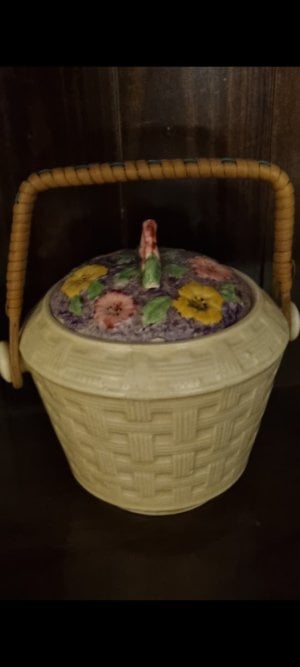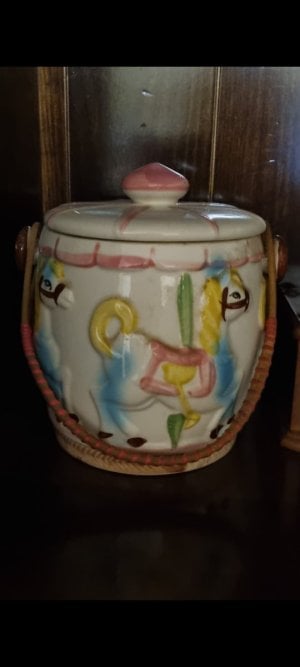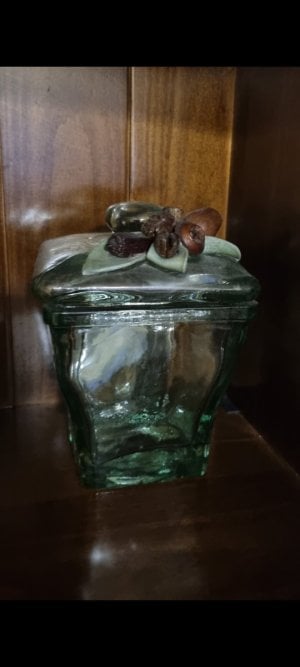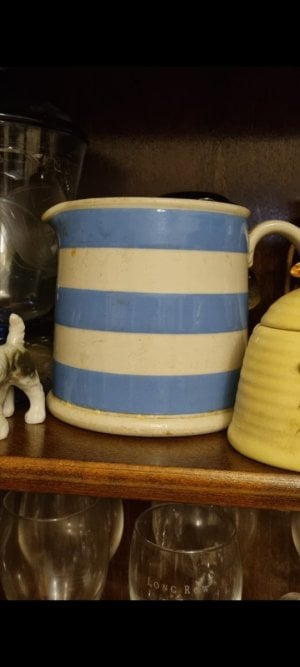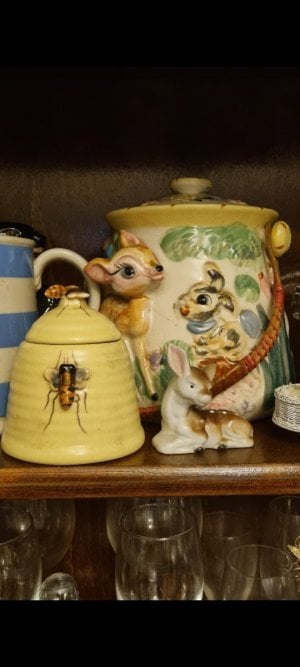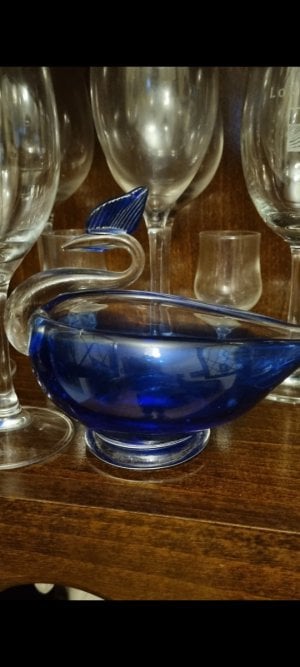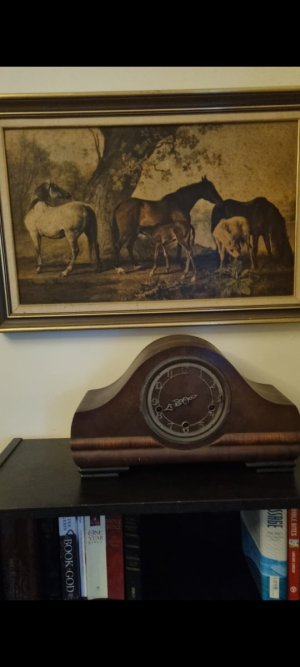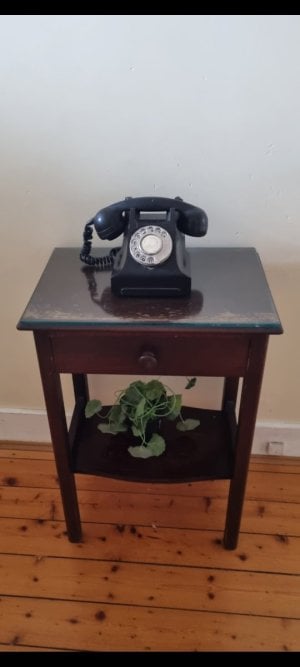Antiques and collectibles: The unexpected 'safety net' in times of rising living costs
- Replies 13
As we’re—unfortunately—all too aware of, living costs have been steadily rising, putting pressure on our financial security.
However, some enterprising Aussies have been holding onto their antiques and collectibles as a 'safety net' to counteract these ever-increasing living costs. Could your antiques be the hidden treasure trove you need in these uncertain times?
A recent antique appraisal event in Canberra was a beacon of hope for keen collectors, estate beneficiaries, and bargain-hunting garage sale enthusiasts.
A 'no fee, no obligation' expert valuation of treasures was offered, and the keen interest shown by the public reflected the appeal of an Antiques Roadshow-style event.
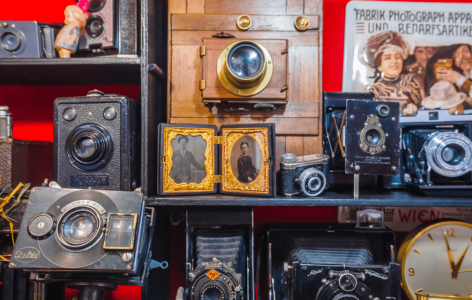
AllBids General Manager, Ben Hastings, said the event aimed to assist people in understanding the potential value of unique or unusual items they have stored away in their homes. Between 150 and 200 hopeful treasure-seekers attended the two-hour appraisal session, with some surprising results uncovered.
'It can be pretty incredible what people are sitting on and not realising what it might actually be worth,' Mr Hastings mentioned. 'There was a silver statue; I think the [owner] only paid a couple of hundred bucks for it, and we valued it at close to $10,000.'
While market demographics and a decrease in interest in antiques contributed to a drop in sales over the past two decades, it is believed that many collectors are holding onto their possessions as a hedge against inflation.
Frank Mathmann, an Associate Professor at the Queensland University of Technology, noted that this financial security might be a factor for collectors, particularly since they tend to have higher rates of home ownership and fewer dependents.
In the current climate, with concerns over inflation, it may be the rational choice to keep hold of valuable antiques and collectibles.
Associate Professor Mathmann stated, 'During the last two or three years, we had inflation figures so high that even used cars started appreciating over time. So, it can make a lot of sense to hang onto things if there's a reasonable market for it that will change the valuation of that item positively.'
However, in contrast, the cost-of-living crisis has led some people to look towards antique auctions to raise some much-needed funds.
eBay Australia's research supports this observation, highlighting that Australians are selling their collectibles to make ends meet or supplement their income. Collectibles are generally more affordable than antiques, making them an attractive option to cash in during these uncertain times.

If you're not skilled at recognising the hidden treasures among your antiques and collectibles, don't worry! We have put together some useful tips to assist you in identifying valuable items and estimating their worth. Prepare to put on your detective hat and potentially discover previously unknown treasures!
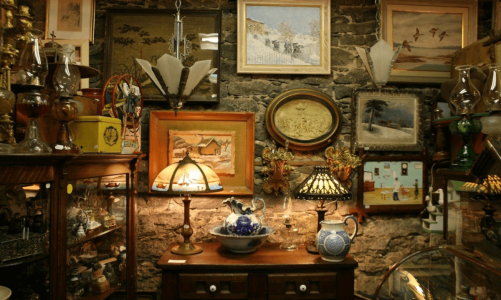
Context
Understanding the background of your item is crucial. It's important to examine any documented history or authenticity certificates that accompany the item, as they can greatly enhance its value. Additionally, take into account the item's age and its connection to local, national, or international historical events, as this can further increase its worth.
Rarity
Items that are rare or scarce often fetch higher prices. One-of-a-kind custom pieces, limited-edition prints, or first-edition books are just a few examples of items whose value can be elevated by their rarity.
Condition
Generally speaking, the better your item's condition, the higher its potential worth. Examine it for any signs of wear, tear, or damage. Keep in mind that restoration efforts may sometimes help, but inappropriate restoration might result in a decline in value.
Hallmarks and signatures
When it comes to jewellery, ceramics, and glassware, keep an eye out for hallmarks or signatures that can reveal important information about their origins, such as the maker, manufacturer, or even the date of creation. These markings serve as valuable clues when it comes to assessing the age and value of your precious items.
Do your research
Use online resources and specialised collector forums to gather information on your item's worth. Also, consider investing in relevant collector's guides or visiting local museums and exhibitions to understand the dynamic antique and collectible market better.
Consult the experts
Whether it's an antique dealer, a museum curator, or an experienced auction house appraiser – do not hesitate to seek professional advice when in doubt. These experts possess the know-how and experience to accurately estimate an item's value.
As we all face higher living costs, it's time to take a closer look at the antiques and collectibles hidden away in our homes. With a bit of luck, you might discover a new source of income or a safety net to provide the financial comfort you need.
Do you happen to have any antiques or collectibles lying around your house? Happy treasure hunting, members!
However, some enterprising Aussies have been holding onto their antiques and collectibles as a 'safety net' to counteract these ever-increasing living costs. Could your antiques be the hidden treasure trove you need in these uncertain times?
A recent antique appraisal event in Canberra was a beacon of hope for keen collectors, estate beneficiaries, and bargain-hunting garage sale enthusiasts.
A 'no fee, no obligation' expert valuation of treasures was offered, and the keen interest shown by the public reflected the appeal of an Antiques Roadshow-style event.

Antique appraisal events have become increasingly popular as more and more people choose to either hold onto their antiques as a safety net or sell off their valuable collectibles. Credit: Unsplash/Alschim.
AllBids General Manager, Ben Hastings, said the event aimed to assist people in understanding the potential value of unique or unusual items they have stored away in their homes. Between 150 and 200 hopeful treasure-seekers attended the two-hour appraisal session, with some surprising results uncovered.
'It can be pretty incredible what people are sitting on and not realising what it might actually be worth,' Mr Hastings mentioned. 'There was a silver statue; I think the [owner] only paid a couple of hundred bucks for it, and we valued it at close to $10,000.'
While market demographics and a decrease in interest in antiques contributed to a drop in sales over the past two decades, it is believed that many collectors are holding onto their possessions as a hedge against inflation.
Frank Mathmann, an Associate Professor at the Queensland University of Technology, noted that this financial security might be a factor for collectors, particularly since they tend to have higher rates of home ownership and fewer dependents.
In the current climate, with concerns over inflation, it may be the rational choice to keep hold of valuable antiques and collectibles.
Associate Professor Mathmann stated, 'During the last two or three years, we had inflation figures so high that even used cars started appreciating over time. So, it can make a lot of sense to hang onto things if there's a reasonable market for it that will change the valuation of that item positively.'
However, in contrast, the cost-of-living crisis has led some people to look towards antique auctions to raise some much-needed funds.
eBay Australia's research supports this observation, highlighting that Australians are selling their collectibles to make ends meet or supplement their income. Collectibles are generally more affordable than antiques, making them an attractive option to cash in during these uncertain times.
Key Takeaways
- Antique appraisal events in Australia have gained popularity as some Australians sell off collectibles or hold onto antiques as a 'safety net'.
- Market demographics and drop in interest for antiques are partly because they are typically owned by Australians aged over 65, who also have decreasing internet use.
- The current cost-of-living crisis has led to increased interest in antique auctions and selling collectibles to make ends meet.
- Collectibles are generally more affordable and easier to on- and offload, making them more appealing to those trying to increase their income.
If you're not skilled at recognising the hidden treasures among your antiques and collectibles, don't worry! We have put together some useful tips to assist you in identifying valuable items and estimating their worth. Prepare to put on your detective hat and potentially discover previously unknown treasures!

The ongoing cost-of-living crisis has sparked a surge in people's curiosity towards antique auctions and selling collectibles to cope with financial difficulties. Credit: Facebook.
Context
Understanding the background of your item is crucial. It's important to examine any documented history or authenticity certificates that accompany the item, as they can greatly enhance its value. Additionally, take into account the item's age and its connection to local, national, or international historical events, as this can further increase its worth.
Rarity
Items that are rare or scarce often fetch higher prices. One-of-a-kind custom pieces, limited-edition prints, or first-edition books are just a few examples of items whose value can be elevated by their rarity.
Condition
Generally speaking, the better your item's condition, the higher its potential worth. Examine it for any signs of wear, tear, or damage. Keep in mind that restoration efforts may sometimes help, but inappropriate restoration might result in a decline in value.
Hallmarks and signatures
When it comes to jewellery, ceramics, and glassware, keep an eye out for hallmarks or signatures that can reveal important information about their origins, such as the maker, manufacturer, or even the date of creation. These markings serve as valuable clues when it comes to assessing the age and value of your precious items.
Do your research
Use online resources and specialised collector forums to gather information on your item's worth. Also, consider investing in relevant collector's guides or visiting local museums and exhibitions to understand the dynamic antique and collectible market better.
Consult the experts
Whether it's an antique dealer, a museum curator, or an experienced auction house appraiser – do not hesitate to seek professional advice when in doubt. These experts possess the know-how and experience to accurately estimate an item's value.
As we all face higher living costs, it's time to take a closer look at the antiques and collectibles hidden away in our homes. With a bit of luck, you might discover a new source of income or a safety net to provide the financial comfort you need.
Do you happen to have any antiques or collectibles lying around your house? Happy treasure hunting, members!



